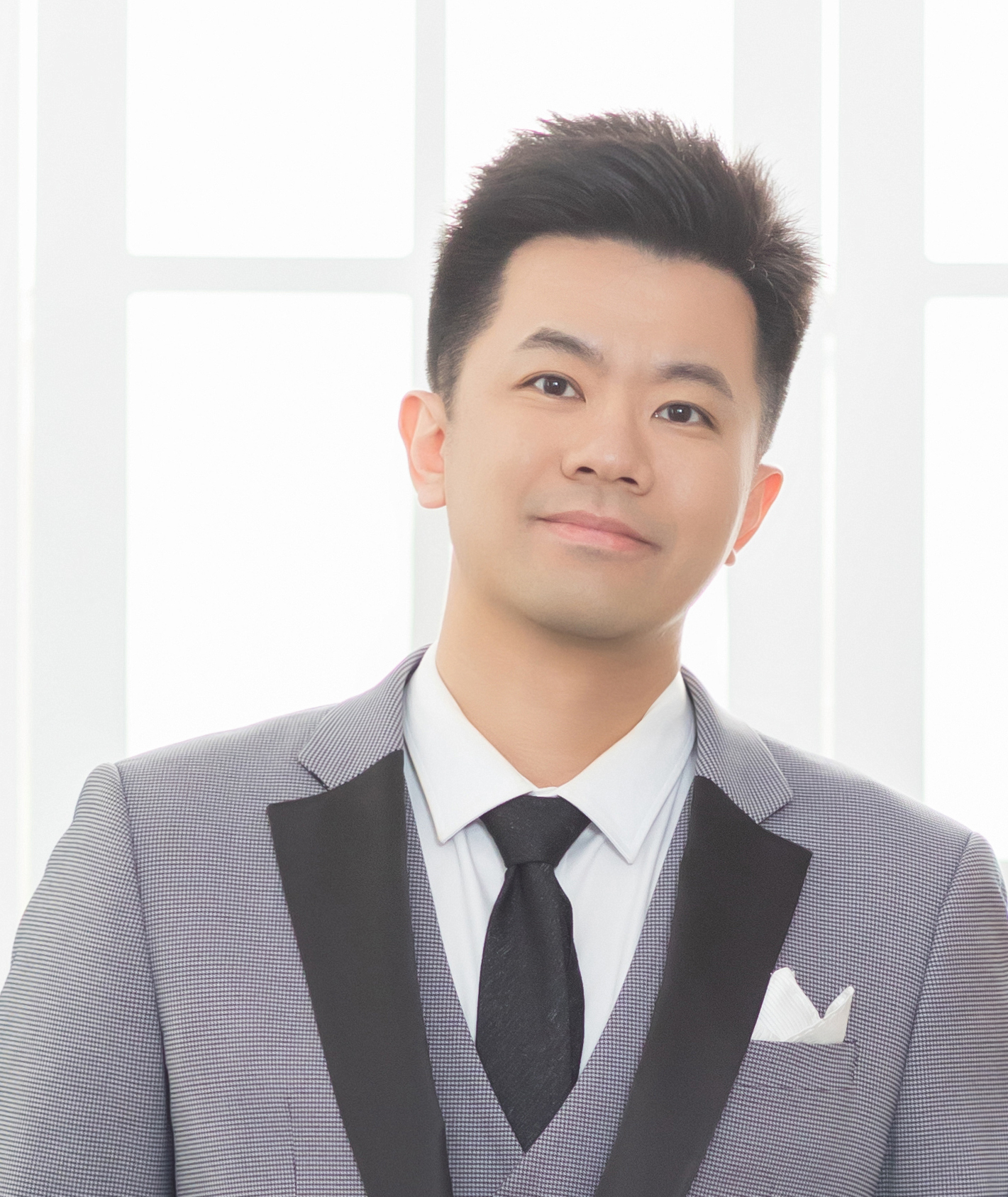
Chen, Po-Yen
Maryland Robotics Center
The Institute for Systems Research
Maryland Energy Innovation Institute
Electrical and Computer Engineering
Dr. Po-Yen Chen is an Assistant Professor in the Department of Chemical and Biomolecular Engineering at the University of Maryland, College Park (UMD), with an affiliate appointment in the Department of Electrical and Computer Engineering. He is also a core member of the Maryland Robotics Center (MRC) and the Artificial Intelligence Interdisciplinary Institute at Maryland (AIM). Dr. Chen earned his B.S. in Chemical Engineering from National Taiwan University (NTU) and his Ph.D. in Chemical Engineering from the Massachusetts Institute of Technology (MIT). Prior to joining UMD, he served as an Assistant Professor at the National University of Singapore (NUS) and conducted independent research as a Hibbitt Early Career Fellow at Brown University.
Awards & Honors
2026 Allan P. Colburn Memorial Lectureship of University of Delaware
2025 Maryland Research Excellence Honoree of UMD
2024 Shining Star Award, American Institute of Chemical Engineers (AIChE)
2023 Winner of UMD’s Invention of the Year Award (Information Sciences)
2023 Faculty–Student Research Award (FSRA) of UMD
2023 Young Innovator Award by Nano Research, Springer
2022 John C. Chen Young Professional Leadership Scholarship, AIChE
2022 Innovative Early-Career Engineers, National Academy of Engineering (NAE)’s U.S. Frontiers of Engineering Symposium
2022 Finalist of UMD’s Invention of the Year Award (Information Sciences)
2021 Fellow of Vebleo
2021 Member of Global Young Academy (GYA)
2020 AIChE 35 Under 35 Award, AIChE
2020 Innovator Under 35 in Asia, MIT Technology Review (MITTR)
2020 Inspiring Research Mentor Award, NUS High School of Mathematics & Science
2019 Outstanding Young Principal Investigator Award, AIChE Singapore Local Section
2019 Emerging Investigator, J. Mater. Chem. B, Royal Society of Chemistry, UK
2018 A*STAR AME Young Investigator Award, A*STAR, Singapore
2015 Hibbitt Early Career Fellowship, Brown University, USA
2014 MIT-Eni Energy Fellowship, MIT, USA
2013 National Study Abroad Fellowship, Taiwan
2011 MIT-Eni Energy Fellowship, MIT, USA
2009 Dr. An-Tai Chen Scholarship (Best Undergraduate Researcher), NTU, Taiwan
2009 Presidential Awards (Top 5% Undergraduates), NTU, Taiwan
Dr. Chen’s research operates at the convergence of machine learning (ML), robotic automation, and materials science. His group integrates predictive and generative modeling with automated experimentation to accelerate the discovery of high-performance, sustainable, and functional materials. By bypassing the bottlenecks of traditional trial-and-error methods, his work addresses complex challenges in multi-component formulation and multi-property optimization. This integrated workflow significantly accelerates the development of materials with programmable properties, targeting urgent global issues such as plastic pollution and resource depletion. The AI-discovered materials emerging from his lab have broad applications, ranging from biodegradable packaging and conductive aerogels to smart soft robotics and sustainable technologies.
Please see our full publication list on Our Group Website or Google Scholar.
In the publication list below, * indicates the corresponding author, and ^ marks equal contribution. My name is underlined, and contributions from my Ph.D., master’s, and undergraduate students are marked with #.
REPRESENTATIVE PUBLICATIONS
- H. Yang#, Q. Chen, T. Chen#, Y. Li#, E. A. Norris#, J. M. Little#, J. Sun, S. Shrestha#, E. Chen, S. Ren, T. Li*, P.-Y. Chen*, “Predictive Design of Ultrastretchable Electrodes with Strain-Insensitive Performance via Machine–Human Collaboration.” Nature Communications (2026).
- Y. Li^,#, S. Schreiber^, H. Yang#, M. Liu, J. M. Little#, Y. Luo, Y. Bao*, C.-J. Shih*, H. Bai*, P.-Y. Chen*, “From Molecules to Machines: A Multiscale Roadmap to Intelligent, Multifunctional Soft Robotics.” Chemical Review 125, 8123 (2025).
- S. Shrestha#, K. J. Barvenik, T. Chen#, H. Yang#, Y. Li#, M. M. Kesavan#, J. M. Little#, H. C. Whitley#, Z. Teng, Y. Luo, E. Tubaldi*, P.-Y. Chen*, “Machine Intelligence Accelerated Design of Conductive MXene Aerogels with Programmable Properties.” Nature Communications 15, 4685 (2024).
- T. Chen^,#, Z. Pang^, S. He^,#, Y. Li#, S. Shrestha#, J. M. Little#, H. Yang#, T.-C. Chung#, J. Sun, I-C. Lee, T. J. Woehl, T. Li*, L. Hu*, P.-Y. Chen*, “Machine Intelligence-Accelerated Discovery of All-Natural Plastic Substitutes.” Nature Nanotechnology 19, 782 (2024).
- H. Yang^,#, J. Li^, X. Xiao^, J. Wang^, Y. Li, K. Li#, Z. Li, H. Yang#, Q. Wang, J. Yang#, J. S. Ho, P.-L. Yeh, K. Mouthaan, X. Wang, S. Shah*, P.-Y. Chen*, “Topographic Design in Wearable MXene Sensors with In-Sensor Machine Learning for Full-Body Avatar Reconstruction.” Nature Communications 13, 5311 (2022).
- H. Yang^,#, J. Li^, K. Z. Lim, C. Pan, T. V. Truong, Q. Wang, K. Li#, S. Li#, X. Xiao, M. Ding#, T. Chen#, X. Liu, Q. Xie, P. Valdivia y Alvarado, X. Wang*, P.-Y. Chen*, “Automatic Strain Sensor Design via Active Learning and Data Augmentation for Soft Machines.” Nature Machine Intelligence 4, 84 (2022). (link)
- L. Jing#, Q. Xie, H. Li, K. Li#, H. Yang#, P. L. P. Ng#, S. Li#, E. H. T. Teo, X. Wang*, P.-Y. Chen*, “Multigenerational Crumpling of 2D Materials for Anticounterfeiting Patterns with Deep Learning Authentication.” Matter 3, 2160 (2020).
- H. Yang^,#, B. S. Yeow^, Z. Li^, K. Li#, T.-H. Chang#, L. Jing#, Y. Li#, J. S. Ho, H. Ren, P.-Y. Chen*, “Multifunctional Metallic Backbones for Origami Robotics with Strain Sensing and Wireless Communication Capabilities.” Science Robotics 4, eaax7020 (2019).